5 Core Game Mechanics That Make Games Addictive

mukesh juadi
Developer passionate about merging technology and creativity in software, games, websites, and more to create engaging experiences.
Discover the 5 core game mechanics that make games addictive! Learn how progression, risk & reward, feedback loops, meaningful choices, and the flow state keep players hooked.

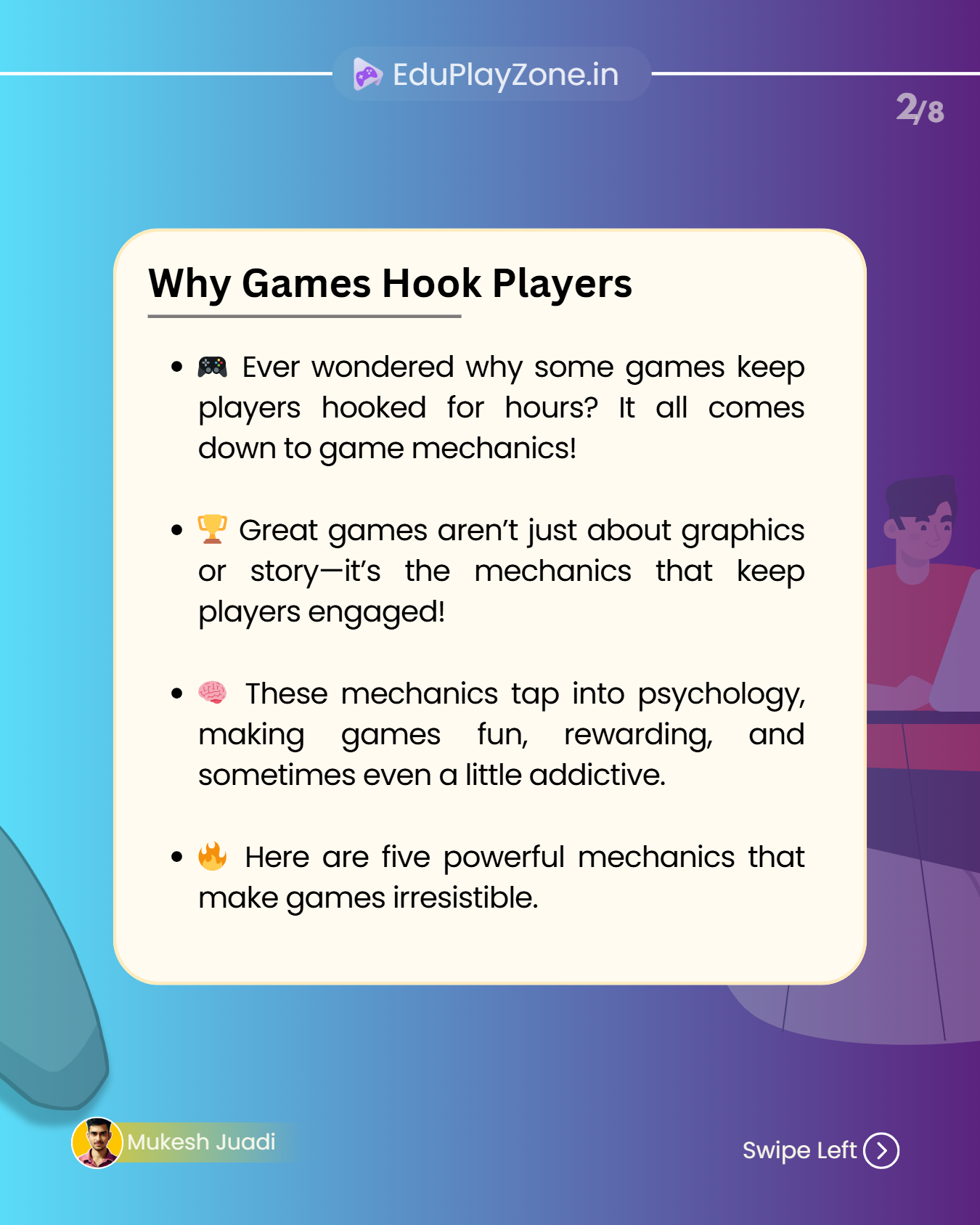
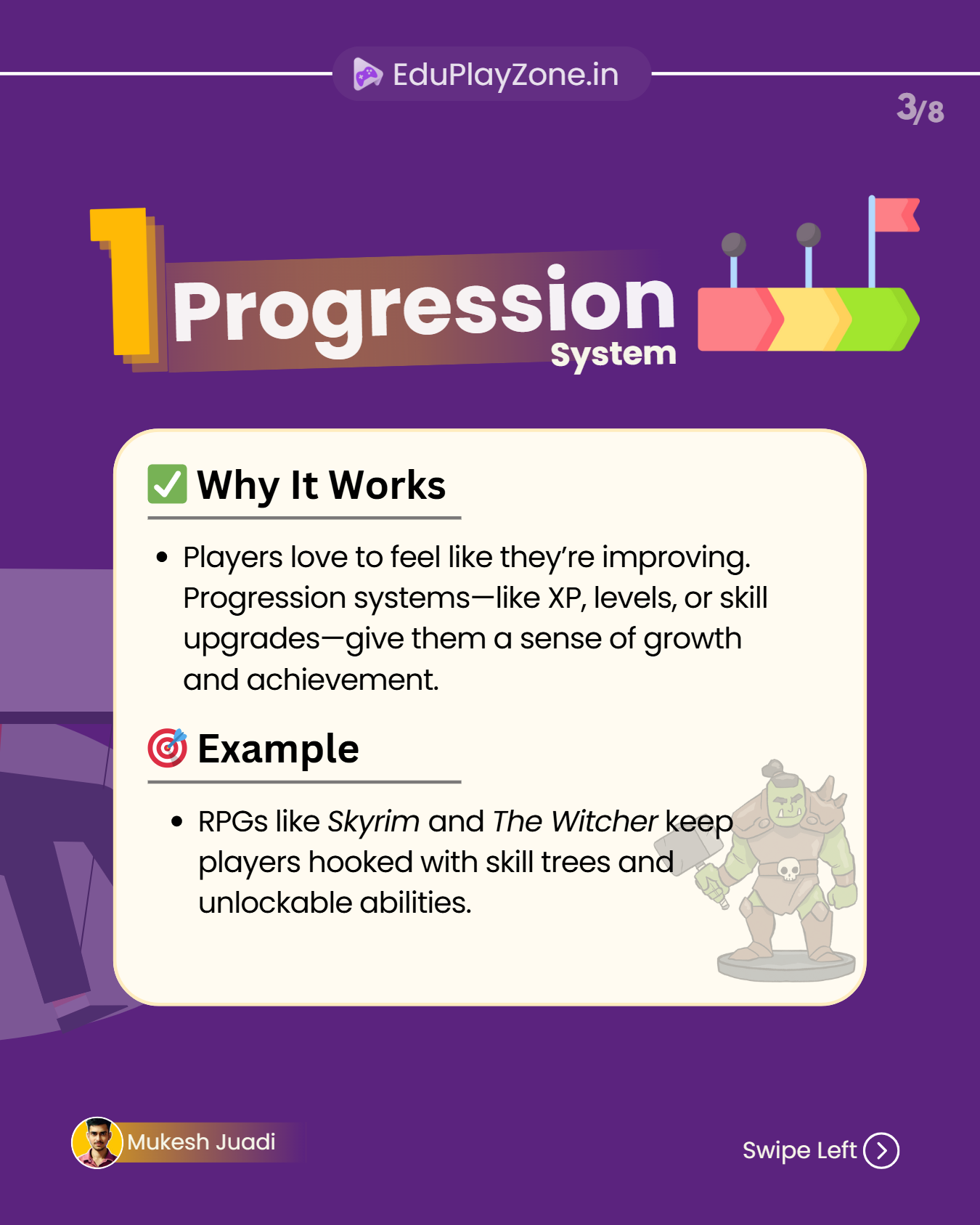

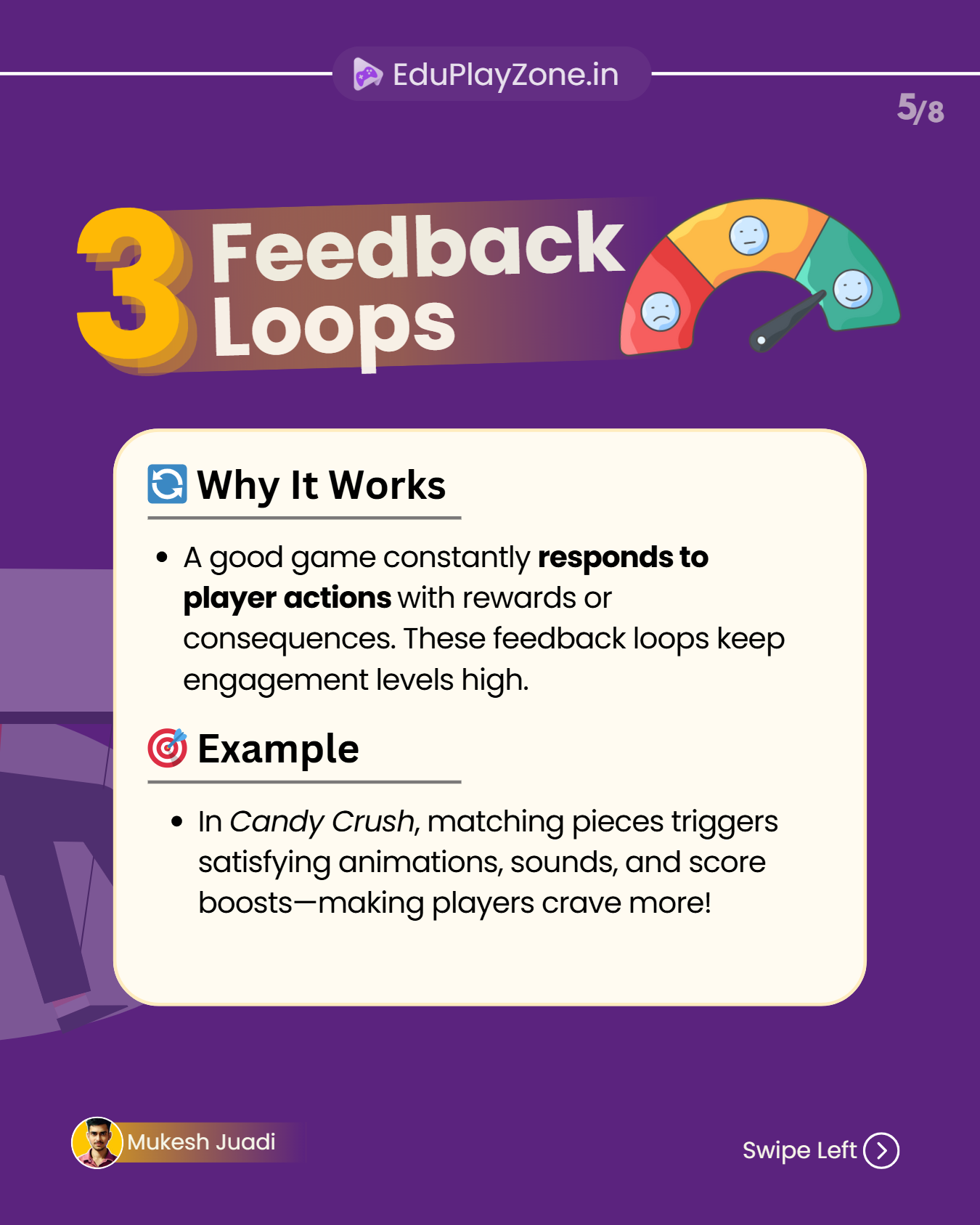
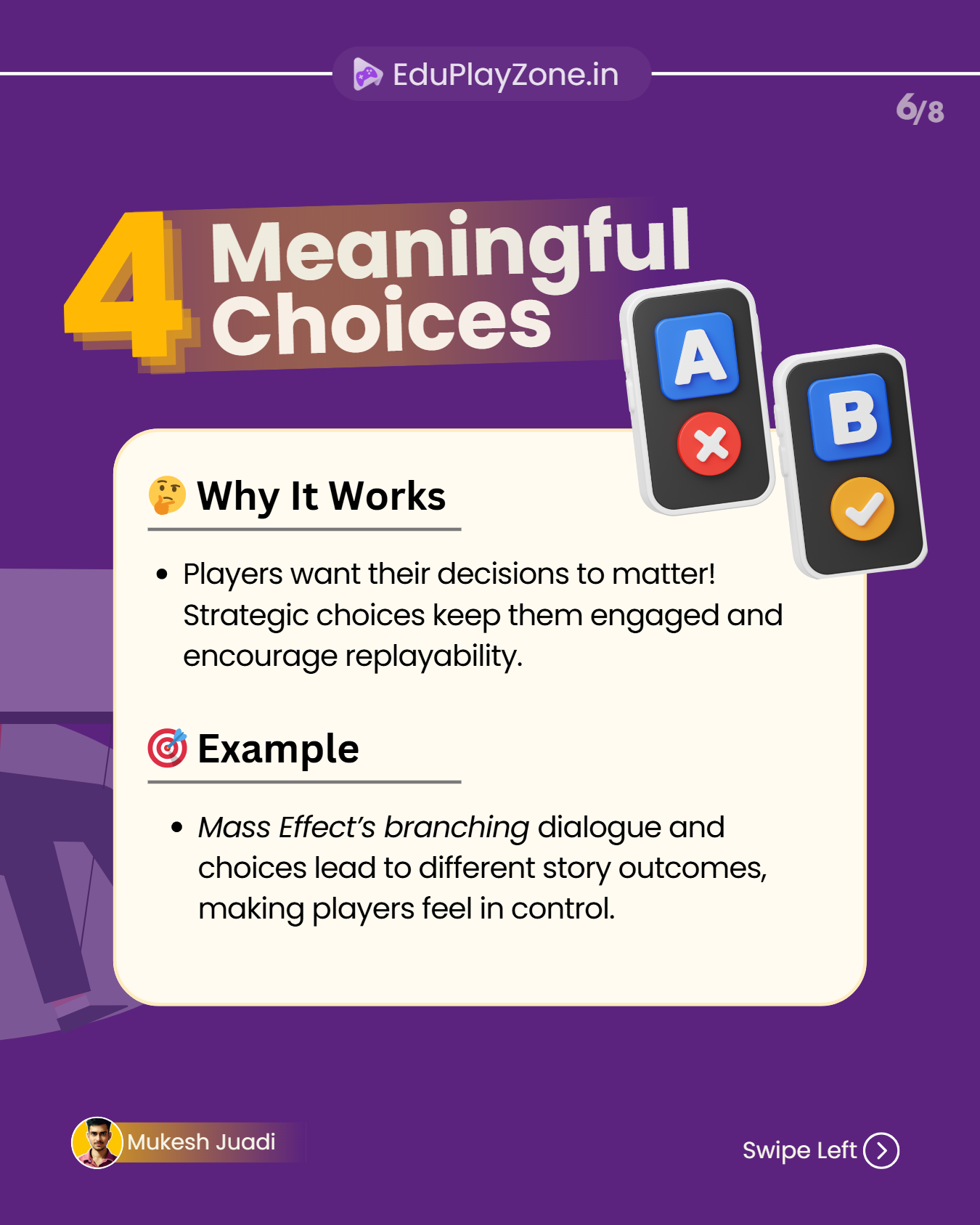
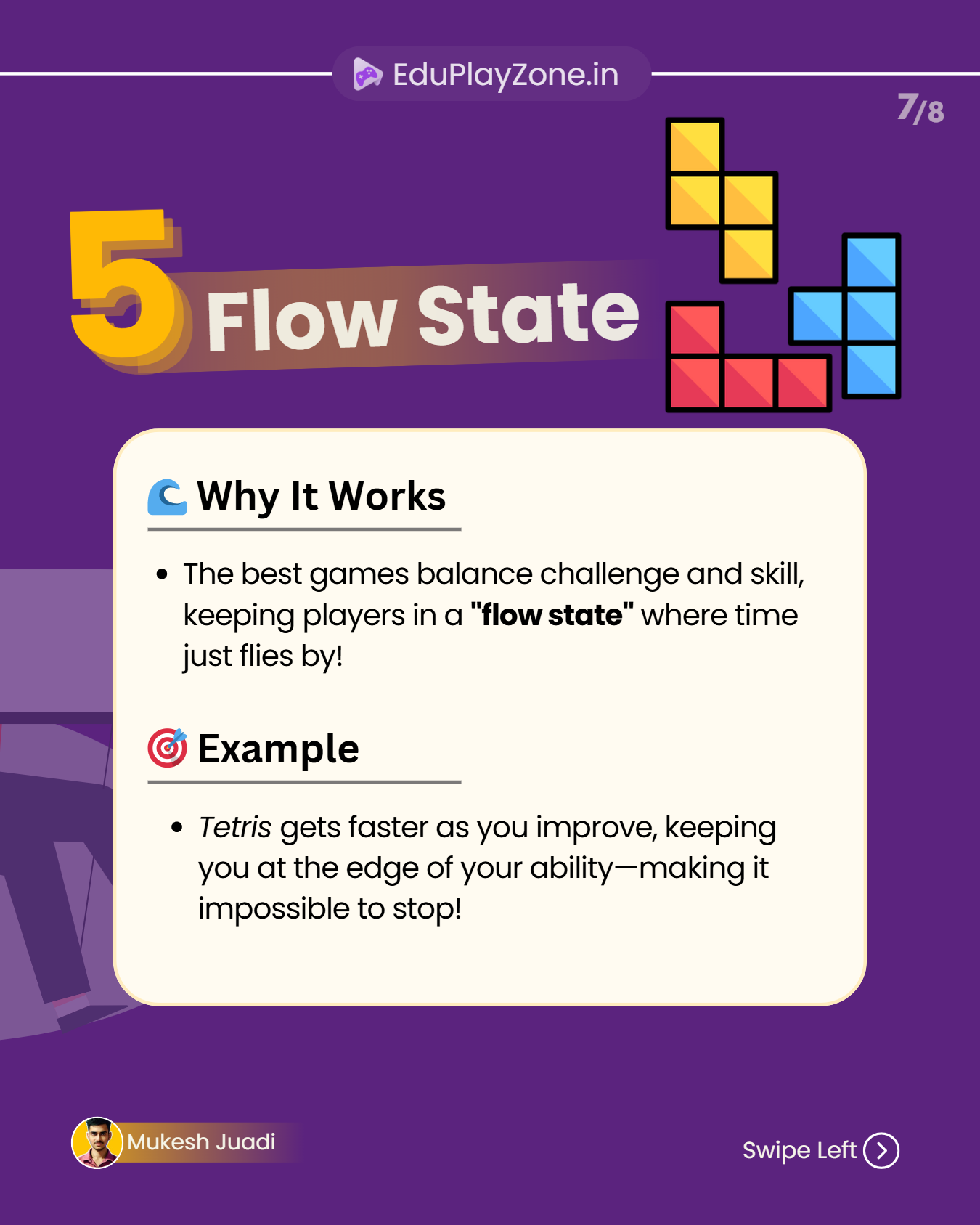

5 Core Game Mechanics That Make Games Addictive 🎮🔥
Ever wondered why some games keep players hooked for hours? It’s not just about graphics or story—it’s the game mechanics that create an engaging experience. Let’s break down the 5 core mechanics that make games irresistible!
1️⃣ Progression System 🏆
Players love leveling up, earning XP, and unlocking new abilities. Progression gives a sense of achievement and keeps players coming back.
👉 Example: Games like Skyrim and The Witcher use skill trees to keep players engaged.
2️⃣ Risk & Reward 💰
High-risk, high-reward situations make gameplay thrilling. When players take a gamble and succeed, it creates intense satisfaction.
👉 Example: Dark Souls forces players to risk their collected souls, making every decision feel impactful.
3️⃣ Feedback Loops 🔄
Games that constantly respond to player actions with rewards (or consequences) create engaging loops.
👉 Example: Candy Crush triggers satisfying animations, sounds, and score boosts with every successful move.
4️⃣ Meaningful Choices 🤔
Players want to feel in control of the game’s outcome. Decisions should matter and shape the experience.
👉 Example: Mass Effect allows players to shape the story through branching dialogue choices.
5️⃣ Flow State 🌊
The perfect balance between challenge and skill keeps players fully immersed in the game.
👉 Example: Tetris increases speed as players improve, keeping them in a flow state where time flies by!
Final Thoughts
A great game isn’t just played—it’s experienced! Master these mechanics, and you’ll create a game that players won’t want to put down. 🎮

